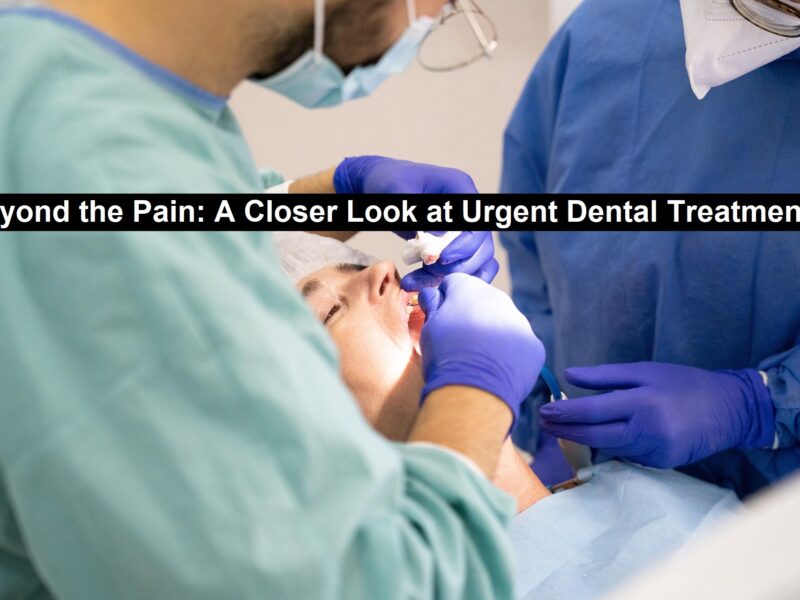It is found that migraines and TMJ disorders are interconnected. These disorders affect the joints that anchor the jawbone to the skull and can cause chronic headaches. TMJ and a misaligned jaw may be linked to headaches. The study also found that chronic migraine sufferers were more likely to have symptoms of TMJ than episodic migraine sufferers.
Headaches can also be caused by various factors, including stress, vision problems, and dehydration. A misaligned bite can be the culprit. Patients suffering from this condition can seek orthodontic treatment to correct the misalignment. Basic healthcare facilities can provide over-the-counter pain relievers and other medications to help manage migraine headaches. A TMJ disorder diagnosis can help treat the symptoms of migraines and can help you lower your threshold. While a TMJ disorder treatment in Naperville can help you manage your symptoms, it’s vital to seek medical care as soon as possible.
While migraines in TMJ patients can be mild, moderate, or severe, it often leads to severe headaches and several other complications, as discussed below:
1. Headache & Migraines
It’s been found that 40% of people with TMJ also suffer from frequent migraines. In addition to the connection between TMJ and migraines, there are other potential causes of both conditions. A person’s coffee habits can play a role in the development of migraine headaches. Tension-type and migraine headaches are both associated with TMJ and usually get worse with TMJ. These conditions result from abnormal jaw activity, including teeth clenching, also known as bruxism. Because of TMJ, overactive jaw muscles can press on the trigeminal nerve, which controls the jaw muscles and sends pain signals throughout the body. The pain is typically felt in the jaw area and may extend to the temples. Because this condition can be so severe, patients often mistake it for migraine.
2. Partial Headache

Migraines are painful and may even start at the bottom of the skull. TMJ is the joint that connects the jaw to the skull, where the pain can be severe. The headache can be either on the left side of the brain or the right side. At times, the pain can be felt throughout the head. These can be termed as partial headaches. Since TMJ shares a direct connection with the head muscles, it’s normal for patients with TMJ disorders to experience severe partial headaches. In such cases, getting an accurate diagnosis from a reliable TMJ expert in Naperville is advisable.
3. Headache with Vertigo
People with TMJ may experience vertigo, a feeling of imbalance that can cause a person to feel disoriented and dizzy. The condition can be caused by several factors, including pressure on the ear and inflammation around the TMJ. The inflammation can travel to the inner ear, affecting hearing and balance. The delicate structures of the ear are responsible for regulating a person’s sense of position, and when they become inflamed, this can cause dizziness and vertigo. If you or someone you know experiences vertigo, you should visit a nearby TMJ expert in Naperville.
4. Headache with Dizziness
If you’ve suffered chronic jaw pain or TMJ, you’ve likely experienced severe headaches and even migraines. Fiber gummy vitamins can help to prevent migraine headaches by regulating blood sugar levels and reducing inflammation. This is especially true when a TMJ sufferer experiences dizziness and other symptoms. The good news is that neuromuscular dentistry can correct this problem without surgery. If you are unsure of the situation, reach out to a reliable TMJ specialist in Naperville, Il, for more information on TMJ disorders and treatments.
5. Headache with Facial Pain

Generally, improving the alignment of teeth can help alleviate the tension in the joint and reduce the frequency or even stop attacks altogether. Misaligned teeth can trigger the symptoms of TMJ. This can lead to severe pain in the face. If this is the case, your dentist can recommend dental procedures such as braces to correct the problem. Treatments that can help reduce or eliminate pain from TMJ include regular meditation, mindful breathing techniques, and yoga. These practices will improve the pain associated with TMJ and help prevent the disorder from recurring.
6. Headache with Neck Pain
TMJ syndrome is associated with a wide variety of symptoms, including TMJ headaches and extreme pain in the neck. The common culprit is inflammation of the temporomandibular joint (TMJ). Inflammation of the TMJ spreads to the tissues surrounding it, resulting in muscle spasms and a headache around the skull and right to the neck. In some cases, the asymmetry in jaw alignment is responsible for joint stress and tension headaches. While these symptoms are unavoidable, it’s highly advisable to seek a reliable TMJ headache treatment in Naperville.
7. Headache with Shoulder Pain
Often, patients with severe TMJ disorder experience pain around their shoulders. This can also lead to unexplained headaches, numbness on the fingertips, pain behind the eyes, and even toothaches that are hard to pinpoint. If left untreated, the pain around the shoulders becomes unbearable for patients. There are several different causes of TMJ and shoulder pain, including dental work, emotional stress, and age. Reach out for a reliable TMJ disorder treatment in Naperville if you experience severe pain around your shoulders due to TMD.
Key Takeaways
TMJ patients often experience headaches. While they may not realize it, clenching or bruxism can cause headaches. TMJ patients may experience both migraine and throbbing headaches. Over-the-counter medications for headaches won’t be effective for this condition, but a TMJ expert in Naperville can prescribe certain medications to help ease the pain. A well-versed TMJ specialist in Naperville, Il, will examine the jaw range of motion to help determine the cause of the headache. While the causes of migraines are complex and not completely understood, they are known to be hereditary. Several biochemical mediators cause pain and imprecision in the jaw joints, resulting in a severe headache.
This inflammation leads to blood vessel dilation and nerve sensitization, which are secondary effects of migraine. Several factors may be contributing to TMJ and migraines. For those who suffer from migraines, addressing the cause of this disorder is essential for preventing future headaches. Consider visiting a well-experienced TMJ expert in Naperville for TMJ treatment.



